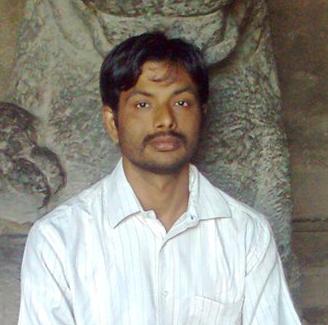How a nomadic Maharashtra tribe built itself a farming village

"Our life was no more than a drama. To earn a living, we entertained people with our Nandi (an ox considered to have been the carrier of Shiva), moving from village to village, city to city. We never owned a home or land. Our kids never got education as we did not have a place to stay. Fed up of wandering around, we settled down on this piece of barren land more than 25 years ago and began farming. All our men and women worked day and night to turn this into green land," says Bhura Gayakwad, a member of the Tirmali Nandiwale tribe.
The land that his 300-strong tribe made their home is in Kanadi Budruk village of Beed district of Maharashtra. Before they settled in the village, which lies about 110 km from Beed City, Tirmali Nandiwale was identified as a nomadic tribe. They made a living singing and dancing with their Nandi oxen, which are trained to perform tricks. In the old caste system, their job was to entertain the upper castes through "cultural art".
Also read -Tribal families in Chhattisgarh cheated of their land in a Rs 500 crore scam
A few sub-groups of the tribe are believed to have migrated to Maharashtra from Andhra Pradesh 800 years ago, while other groups followed some 250 years ago. Now, Trimal Nandiwale are largely concentrated in Ahmadnagar, Pune, Sangli, Satara, Kolhapur, Aurangabad, Jalgaon and Beed.
Since members of the tribes didn't have ancestral homes or postal addresses, they didn't figure in the records of the Election Commission. And since they could not vote, they were all deprived of the rights guaranteed to every Indian citizen. Indeed, even the Maharashtra government was not aware for years that a population of Tirmali Nandiwale people had established a permanent village in Kanadi Budruk.
Now, though, the government has issued them a postal code. "After 25 years of struggle, they now have about 150 acres of community farms. They get regular supply of drinking water, electricity and other basic facilities from the government. The most important thing is that many children from the community are attending school and college now, and making themselves independent," says Satish, a lawyer who has witnessed the tribe's struggle.
The tribe, however, is yet to get rights to the land. Social activist Walmiki Nikalje says, "As per the Maharashtra Land Revenue Code and resolutions passed by the government from time to time since 1964, state grazing land encroached by poor landless communities and cultivated for over 25 years goes to them. They become its owners. Tirmali Nandiwale people started cultivating land in Kanadi Budruk before 1991, but rights to the land have still not been transferred to them. Now is the time to fight for their land rights."
It's a struggle that the younger members of the tribe such as Rama Babu and Ramesh, who are both graduates and have landed jobs in the police, are now prepared to wage on their own. Some other members of the community such as Saheba Bajirao, Yallappa, Rama and Appa are making a name in this area as social activist.
Saheba says, "We are now literate, self-reliant, organised. We even participate in gram panchayat elections. It makes us proud."
More in Catch - Punjab's Dalits are fighting for land rights, and they are winning
After a Jarawa baby's murder, fear clutches illicit visitors
First published: 28 July 2016, 0:44 IST





![BJP's Kapil Mishra recreates Shankar Mahadevan’s ‘Breathless’ song to highlight Delhi pollution [WATCH] BJP's Kapil Mishra recreates Shankar Mahadevan’s ‘Breathless’ song to highlight Delhi pollution [WATCH]](https://images.catchnews.com/upload/2022/11/03/kapil-mishra_240884_300x172.png)

![Anupam Kher shares pictures of his toned body on 67th birthday [MUST SEE] Anupam Kher shares pictures of his toned body on 67th birthday [MUST SEE]](https://images.catchnews.com/upload/2022/03/07/Anupam_kher_231145_300x172.jpg)





_in_Assams_Dibrugarh_(Photo_257977_1600x1200.jpg)
